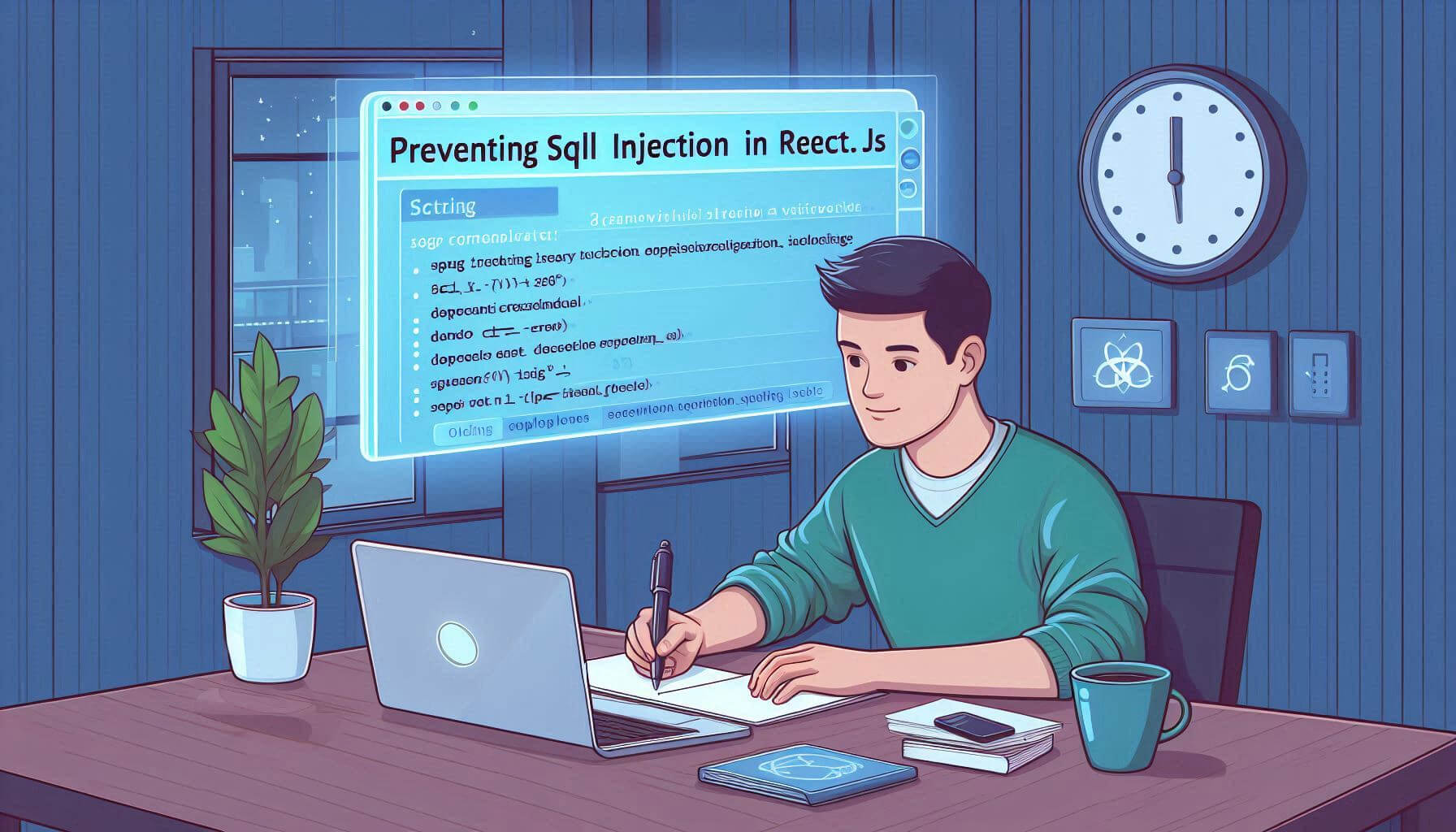How to Prevent SQL Injection (SQLi) in React.js
 Pentest_Testing_Corp
Pentest_Testing_Corp
Introduction to SQL Injection (SQLi) in React.js
SQL Injection (SQLi) is one of the most common and dangerous vulnerabilities in web applications. It allows attackers to execute arbitrary SQL queries on your database, potentially exposing sensitive information or even compromising your entire system. React.js, a popular JavaScript library for building user interfaces, is often integrated with backend databases. While React.js itself doesn’t interact directly with the database, it can still be vulnerable to SQLi if proper precautions are not taken during backend integration.
In this post, we will explore how SQLi can affect React.js applications and how to prevent it using best practices and proper coding techniques.
What is SQL Injection?
SQL Injection occurs when an attacker is able to manipulate SQL queries through user input fields, such as forms or URL parameters, to gain unauthorized access to a database. In the context of React.js, SQLi usually affects the backend API or server-side database rather than the front end itself. However, improper handling of user input in React.js applications can lead to unsafe interactions with the backend.
Common Causes of SQL Injection in React.js
Directly embedding user input into SQL queries: If input from the user is directly inserted into a database query without validation or sanitization, it can allow malicious code to execute.
Insecure API calls: When React.js interacts with a backend API that is not secure, attackers may exploit the API to perform SQLi.
Lack of prepared statements or parameterized queries: These methods ensure that user input is treated as data, not code, preventing SQLi attacks.
Preventing SQL Injection in React.js: Best Practices
1. Use Prepared Statements and Parameterized Queries
Always use parameterized queries or prepared statements when interacting with your database. These methods separate the SQL logic from the data and ensure that user input is treated as data, not executable code. For example, using Node.js with an SQL database, you can do something like this:
javascript
const sql = require('mysql');
const connection = sql.createConnection({ host: 'localhost', user: 'root', password: '', database: 'test' });
let userInput = req.body.userInput; // User input from React.js frontend
let query = 'SELECT * FROM users WHERE username = ?';
connection.query(query, [userInput], (err, results) => {
if (err) throw err;
res.send(results);
});
This approach safely binds user input and prevents SQL injection attacks.
2. Validate and Sanitize User Inputs
Always validate and sanitize user input on both the client and server sides. Use appropriate validation methods to ensure that the data conforms to the expected format before sending it to the backend. In React.js, you can use libraries like validator or implement custom validation logic to check user input.
javascript
import validator from 'validator';
if (!validator.isEmail(userInput)) {
throw new Error('Invalid email address');
}
3. Use ORM (Object-Relational Mapping) Libraries
ORM libraries like Sequelize or TypeORM help abstract away raw SQL queries and provide an additional layer of security. By using ORM methods for database queries, you reduce the risk of SQL injection since these libraries automatically handle query parameterization.
Example using Sequelize:
javascript
const { User } = require('./models');
User.findOne({ where: { username: userInput } })
.then(user => res.send(user))
.catch(err => console.log(err));
Conclusion
SQL Injection is a critical security threat that can impact any web application, including those built with React.js. By following best practices like using prepared statements, validating inputs, and using ORM libraries, you can safeguard your application against SQLi attacks. To ensure your React.js application is secure, we recommend scanning it with our free Website Security Checker tool regularly.
Don't let SQL Injection compromise your system. Implement secure coding practices today to keep your users' data safe.
Try Our Free Website Security Checker Tool
To see if your React.js application is vulnerable to SQL Injection or other security threats, use our free Website Security Checker tool today!
Subscribe to my newsletter
Read articles from Pentest_Testing_Corp directly inside your inbox. Subscribe to the newsletter, and don't miss out.
Written by

Pentest_Testing_Corp
Pentest_Testing_Corp
Pentest Testing Corp. offers advanced penetration testing to identify vulnerabilities and secure businesses in the USA and UK, helping safeguard data and strengthen defenses against evolving cyber threats. Visit us at free.pentesttesting.com now to get a Free Website Security Check.